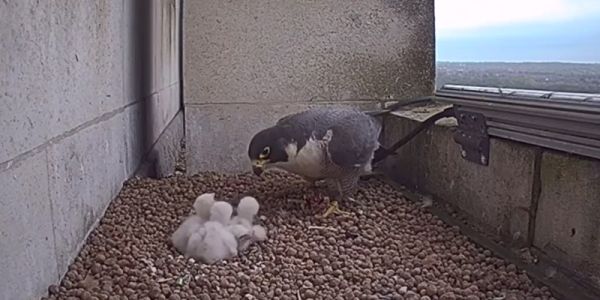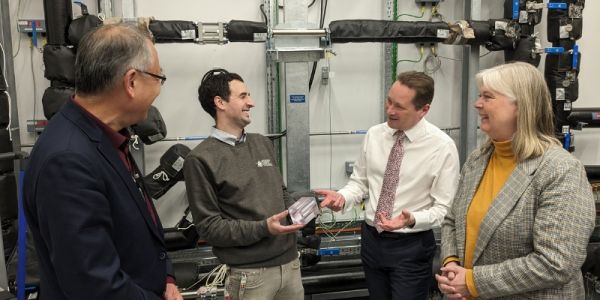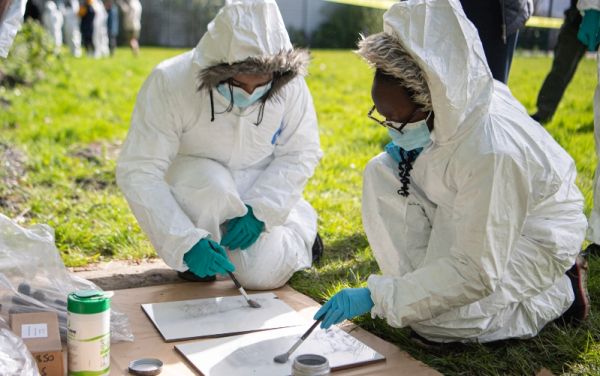
Young entrepreneurs pitch to business experts
Students from Leeds University Business School (LUBS) showed off their entrepreneurial spirit as they pitched business ideas to industry experts in the LUBS Entrepreneur Award 2024.

Students from Leeds University Business School (LUBS) showed off their entrepreneurial spirit as they pitched business ideas to industry experts in the LUBS Entrepreneur Award 2024.

Four tiny peregrine falcon chicks have hatched in the nest on Parkinson Tower this week.

The creation of a new cutting-edge facility has established the University of Leeds as the UK’s leading experimental nuclear institution in the field of multiphase fluid flow.

An exhibition by Leeds-based Iranian artist Mohammad Barrangi opens on 1 May at the University of Leeds, as part of the year-long Smeaton300 celebrations.

The founder of a social enterprise that helps disadvantaged people back into work has been recognised in a list of Europe’s top young entrepreneurs.

A new study has uncovered a mechanism that could solve a long-standing mystery about decaying planetary orbits around stars like our Sun.

Be Curious, the annual University of Leeds family open day, is back for 2024.

Northern Monk Brew Co. and a historian at the University of Leeds have collaborated to brew Mhór, a beer inspired by a 5,000-year-old recipe made in Northern England.

Campaigner Sarah Lloyd, whose 17 year-old son died after being brutally stabbed, has shared the devastating impact of his death with local schoolchildren in an anti-knife crime initiative.

Higher education providers across Europe are joining forces to tackle global challenges.